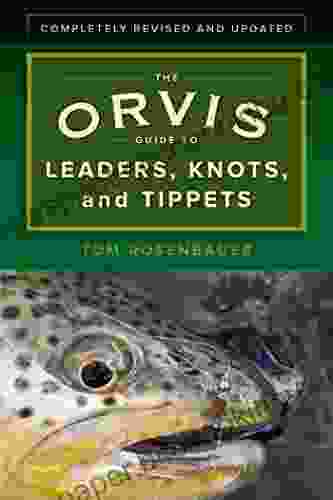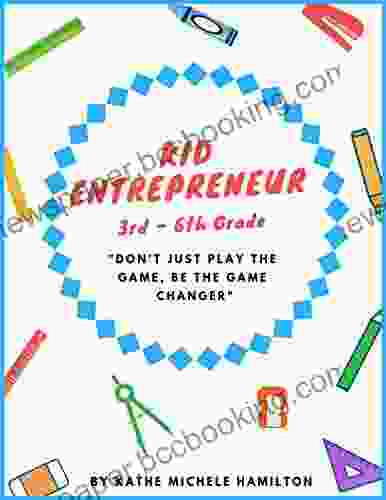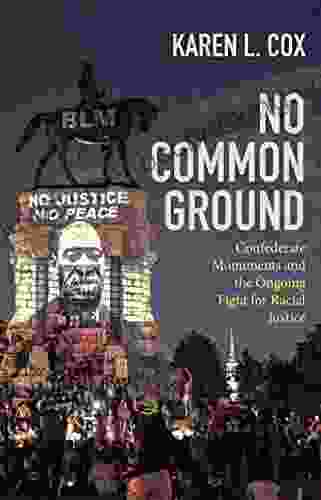Confronting the Legacy of Racism: Confederate Monuments and the Ongoing Fight for Racial Justice

Scattered across the United States, Confederate monuments stand as a testament to a painful chapter in American history. Erected by white supremacists during the Jim Crow era, these statues and memorials have become symbols of racism and oppression, perpetuating the myth of a "lost cause" and fueling racial division. In recent years, the debate over Confederate monuments has reignited with renewed vigor, sparking protests, legal battles, and a national reckoning with the legacy of slavery and systemic racism.
4.6 out of 5
| Language | : | English |
| File size | : | 11044 KB |
| Text-to-Speech | : | Enabled |
| Screen Reader | : | Supported |
| Enhanced typesetting | : | Enabled |
| X-Ray | : | Enabled |
| Word Wise | : | Enabled |
| Print length | : | 211 pages |
The Historical Context
The origins of Confederate monuments can be traced back to the Reconstruction era following the Civil War. During this period, white southerners sought to establish a narrative that justified the Confederacy's defeat and downplayed the role of slavery in the conflict. They erected monuments to Confederate leaders and soldiers, glorifying their role in defending white supremacy and states' rights.
Over time, these monuments gained symbolic significance, becoming rallying points for white supremacist groups and a source of pride for those who clung to the Lost Cause ideology. They served as physical reminders of the Confederacy's desire to preserve slavery and white dominance, reinforcing the racial hierarchy that had existed in the South.
The Fight for Racial Justice
In the decades following the Civil Rights Movement, the fight for racial justice gained momentum. Activists and civil rights leaders challenged the symbols of white supremacy, including Confederate monuments. They argued that these monuments glorified traitors who fought to maintain slavery and that their continued presence in public spaces perpetuated racial inequality.
The movement to remove Confederate monuments gained traction in the 21st century. In the wake of the Charleston church shooting in 2015, a wave of protests and demands for the removal of Confederate symbols spread across the country. Amidst heated debates and legal battles, several cities and states have taken steps to remove or relocate these monuments.
The Debate Over Confederate Monuments
The debate over Confederate monuments is complex and multifaceted. Proponents of their removal argue that they are symbols of hate and racism that have no place in a just and inclusive society. They emphasize the need to confront the legacy of slavery and white supremacy, and to create a more equitable future for all Americans.
Opponents of removing Confederate monuments often invoke the principles of historical preservation and free speech. They contend that these monuments are part of American history and that their removal would erase the past. They argue that it is important to preserve them as a reminder of the sacrifices made by Confederate soldiers and to learn from the mistakes of the past.
The Ongoing Fight
The fight over Confederate monuments continues today. While some progress has been made in removing or relocating these symbols, many still remain standing. The debate over their future is likely to continue for years to come.
The ongoing fight for racial justice is not limited to the removal of Confederate monuments. It encompasses a broader struggle to dismantle systemic racism in all its forms. From police brutality and mass incarceration to unequal access to education and healthcare, the legacy of slavery and white supremacy continues to cast a shadow over American society.
The debate over Confederate monuments highlights the complex and ongoing struggle for racial justice in the United States. These symbols represent a painful legacy of racism and oppression, and their continued presence in public spaces perpetuates racial inequality. The fight to remove them is a necessary step towards creating a more just and inclusive society, but it is only one part of the broader struggle for racial justice. By confronting our history and confronting the symbols of racism, we can work towards a future where all Americans are treated with dignity and respect.
4.6 out of 5
| Language | : | English |
| File size | : | 11044 KB |
| Text-to-Speech | : | Enabled |
| Screen Reader | : | Supported |
| Enhanced typesetting | : | Enabled |
| X-Ray | : | Enabled |
| Word Wise | : | Enabled |
| Print length | : | 211 pages |
Do you want to contribute by writing guest posts on this blog?
Please contact us and send us a resume of previous articles that you have written.
 Book
Book Novel
Novel Page
Page Chapter
Chapter Text
Text Story
Story Genre
Genre Reader
Reader Library
Library Paperback
Paperback E-book
E-book Magazine
Magazine Newspaper
Newspaper Paragraph
Paragraph Sentence
Sentence Bookmark
Bookmark Shelf
Shelf Glossary
Glossary Bibliography
Bibliography Foreword
Foreword Preface
Preface Synopsis
Synopsis Annotation
Annotation Footnote
Footnote Manuscript
Manuscript Scroll
Scroll Codex
Codex Tome
Tome Bestseller
Bestseller Classics
Classics Library card
Library card Narrative
Narrative Biography
Biography Autobiography
Autobiography Memoir
Memoir Reference
Reference Encyclopedia
Encyclopedia Laura Killen Anderson
Laura Killen Anderson Karen Tei Yamashita
Karen Tei Yamashita Nina Disesa
Nina Disesa Julia Quinn
Julia Quinn Junji Nakagawa
Junji Nakagawa Karen S Robbins
Karen S Robbins Stephen Kurczy
Stephen Kurczy Julie Mulhern
Julie Mulhern Kassandra Lamb
Kassandra Lamb Judith Mackrell
Judith Mackrell Kim Levings
Kim Levings Julie Littlechild
Julie Littlechild Kevin Hillstrom
Kevin Hillstrom Karl Wiegers
Karl Wiegers Matthew Cronin
Matthew Cronin Judy Tilton Brunner
Judy Tilton Brunner Mel Atkey
Mel Atkey Melissa Hart
Melissa Hart Luigi Pirandello
Luigi Pirandello Karen Malena
Karen Malena
Light bulbAdvertise smarter! Our strategic ad space ensures maximum exposure. Reserve your spot today!

 Francisco CoxUnveiling the Elite: The Enthralling World of Navy SEALs in Military Service
Francisco CoxUnveiling the Elite: The Enthralling World of Navy SEALs in Military Service
 Johnny TurnerUnlock the Secrets of Profitable Day Trading with the Ultimate Trading Guide
Johnny TurnerUnlock the Secrets of Profitable Day Trading with the Ultimate Trading Guide Duane KellyFollow ·2.5k
Duane KellyFollow ·2.5k Emmett MitchellFollow ·19.6k
Emmett MitchellFollow ·19.6k Norman ButlerFollow ·14k
Norman ButlerFollow ·14k Aron CoxFollow ·12.1k
Aron CoxFollow ·12.1k Samuel WardFollow ·15.8k
Samuel WardFollow ·15.8k Raymond ChandlerFollow ·2.7k
Raymond ChandlerFollow ·2.7k Kirk HayesFollow ·14.8k
Kirk HayesFollow ·14.8k Davion PowellFollow ·16.8k
Davion PowellFollow ·16.8k

 Drew Bell
Drew BellLife and Death in West Africa: A Groundbreaking Account...
A Journey Through...

 Stanley Bell
Stanley BellMaster the Art of Fly Fishing Line Management: A...
Are you an avid fly...

 Ernest Powell
Ernest PowellUnleash Your Entrepreneurial Spirit: A Comprehensive...
In the competitive...

 Derrick Hughes
Derrick HughesMaster Your Ride: The Ultimate Guide to Road Bike...
Are you ready to elevate your cycling...

 Camden Mitchell
Camden MitchellUnveiling the Enchanting World of American Royals III:...
Embark on a Captivating Royal Saga: American...

 Richard Simmons
Richard SimmonsUnveiling the Secrets of Fly Tying: A Comprehensive...
In the realm of...
4.6 out of 5
| Language | : | English |
| File size | : | 11044 KB |
| Text-to-Speech | : | Enabled |
| Screen Reader | : | Supported |
| Enhanced typesetting | : | Enabled |
| X-Ray | : | Enabled |
| Word Wise | : | Enabled |
| Print length | : | 211 pages |








